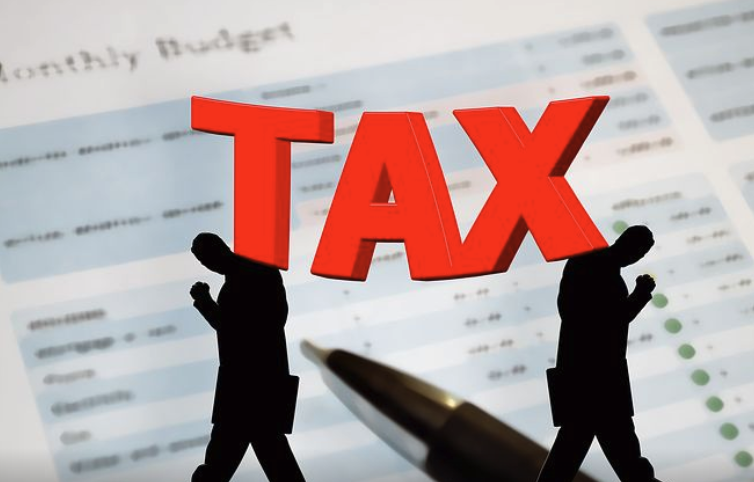By CHARLES BOOTHE Bluefield Daily Telegraph
BLUEFIELD — Gov. Jim Justice’s plan to gradually end the personal income tax in the state is running into some opposition, especially concerning the proposed hikes in sales taxes to make up for the revenue loss.
Justice wants to amend state Code and cut personal income 60 percent starting Jan. 1, 2022, with the goal of eventually ending it all together.
But that would mean a tax revenue loss of just over $1 billion a year to the state. To compensate for the loss, Justice has proposed to raise about $900 million to make up most of the difference by increasing the consumer sales tax from 6 percent to 7.9 percent along with targeting extra taxes on soft drinks, beer, tobacco products, among goods and services.
The Senate version cuts some of those specific taxes but raises the state sales tax to 8.5 percent and imposes a state hotel-motel tax of 4.3 percent, which, combined with the local hotel-motel tax and a 1 percent Home Rule sales tax in cities, would mean the tax could jump to has high as 19.8 percent.
Although state Sen. Chandler Swope, R-6th District, supports the eventual elimination of the personal income tax as a way to bring people and businesses into the state, he is more cautious about tax hikes, especially the hotel-motel tax.
“I very strongly believe that elimination of personal income tax would result in the largest boom in our economy than anything we have done in the last 50 years,” he said Thursday. “However, I fear that the hotel/motel tax is likely to result in negative growth in our area and I will do what I can to have the tax reduced or eliminated.”
The version of the bill that passed the House includes no tax increases at all but relied on a longitudinal approach, gradually eliminating the personal income tax as state revenue grows enough to support the decreases.
Del. Marty Gearheart, R-Mercer, said recently he does not “favor the Governor’s bill in any way, shape or form.”
Besides increasing the state’s barrel tax on beer, the proposal would increase taxes for things such as legal services and tax services, and even haircuts. Haircuts currently are not taxed in the state, he said.
Gearheart said that redistributing taxes “is not a tax cut as far as I’m concerned.”
Bluefield Mayor Ron Martin, who is also the co-owner of the Grants Supermarket stores, is also opposed.
“The problem is, it isn’t the sales tax at the cash register,” he said. “It is taxed as it comes in the door.”
That means the business pays the extra tax upfront and then is forced to pass it on to consumers by increasing the cost of the product.
“A six-pack of Coke would cost 36 cents more,” he said of the 6-cent per bottle tax. “Customers pay attention to that. My price won’t compete competitively…(with stores in Virginia).”
Other tax increases in the past, like that gasoline tax, hurts border counties, he said, and this is no exception.
But Swope said he wants some protection for border counties.
A final plan will probably include parts of all the plans and will certainly consider the cross-border issues,” he said recently. “I’m hopeful a final plan can be achieved. If so, it will trigger the biggest economic development in the history of West Virginia.”
Part of Justice’s plan to help offset the cost of eliminating the tax is that more people will move into the state to take advantage of the no personal income tax, contributing to a boom.
But many disagree with that, including Mercer County Commissioner Greg Puckett, who also opposes the plan.
Puckett said most of the other states that have gone down this road did not see such population growth and one state, Kansas, actually had to bring back the personal income tax.
He also said the increase in the taxes would end up costing consumers more in daily living expenses, and they are already struggling to the pay the bills.
Gaylene Miller, AARP West Virginia State Director, released a statement on Tuesday opposing the plan.
“As the West Virginia Legislature deliberates major reforms to the state’s tax structure, AARP urges state leaders and lawmakers to contemplate the unintended consequences for 50-plus West Virginians, a significant economic engine in the Mountain State, as well as other hard-working individuals and families,” she said.
“The latest research demonstrates no clear positive relationship between cutting income taxes and economic growth, and recommends well-balanced and broadly applied progressive taxation using a combination of income, sales, and property taxes to ensure that West Virginia can generate sufficient revenue to provide essential services. Experiences of other states offer a real-life cautionary tale: no measurable economic effect, but failure to provide essential, basic services that older West Virginians depend on. Initiatives to retain adequate revenue as part of any tax reform effort should not rest on the backs of those West Virginians who can least afford it.”

